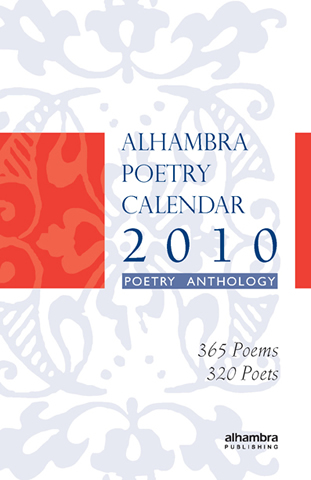In this passage from
Don Paterson's "Phantom" (from his collection
Rain)
, the "it" at the beginning refers to "matter":
It made an eye to look at its fine home,
but there, within its home, it saw its death;
and so it made a self to look at death,
but then within the self it saw its death;
and so it made a soul to look at self,
but then within the soul it saw its death;
and so it made a god to look at soul,
and god could not see death within the soul,
for god was
death. In making death its god
the eye had lost its home in finding it.
We find this everywhere the eye appears.
Were this design, this would have been the flaw. (57)For proponents of "
intelligent design," the eye is evidence of design in nature; they argue that the eye's "
irreducible complexity" is proof that it cannot be the product of a process of natural selection of random mutations. This passage from Paterson, then, provides both a narrative of the evolution of religious belief (eye-home-self-soul-god; a sequence motivated by the eye's awareness of death) and a critique of intelligent design: "Were this design ..." The eye is not evidence of design but counterevidence. (Before I go on about the poem, I should add that the eye is a bad example as evidence of "intelligent design": the evolutionary steps that lead to the eye are well-documented.)
Now the fact that this argument or narrative appears in a poem (and not an essay) is enough to make its claims a little bit unstable; claims made in literary texts are of a different order than those made in scientific or philosophical texts (Literary Theory 101). But this passage is rendered even more unstable than usual by the context it appears in: it is the third of three italicized stanzas that conclude the sixth section of Paterson's seven-part "Phantom." The first stanza of the section introduces the speaker of the italicized material (I am italicizing this because that's what I do with quotations in blog posts):
For one whole year, when I lay down, the eye
looked through my mind uninterruptedly
and I knew a peace like nothing breathing should.
I was the no one that I was in the dark womb.
One night when I was lying in dark meditation
the I-Am-That-I-Am-Not spoke to me
in silence from its black and ashless blaze
in the voice of Michael Donaghy the poet.
It had lost his lightness and his gentleness
and took on that plain cadence he would use
when he read out from the Iliad
or the Táin
. (56)In the poem's overall arc, then, the passage I began with is spoken by "the I-Am-That-I-Am-Not" "in the voice of
Michael Donaghy" to the speaker of the whole sequence. Donaghy's voice continues to speak in the poem's next (and final) section, where that voice refers to the poem's overall speaker as "Donno." Thus, the poem's conceit is that the italicized passages are spoken by a version of God (not "
I Am That I Am" but "I Am That I Am Not") in the voice of a deceased poet (Donaghy) to the poet who is writing the poem ("Donno," presumably meant to be Paterson himself, in spite of Literary Theory 101).
Beyond that, the passage I began with is dismissed both by the voice of Donaghy and by "Donno." Donaghy's voice begins the final section by saying, "Donno, I can't keep this bullshit up" (58). And after the italics have gone on for another two pages, "Donno" interrupts the speech (again, these italics are mine, to mark the quotation):
He went on with his speech, but soon the eye
had turned on him once more, and I'd no wish
to hear him take that tone with me again. (59)Thus, the wonderful passage on the eye's metaphorical evolution into a godhead is implicitly called into question (or even repudiated) in at least three ways: first, it is spoken by a godlike figure, the "I-Am-That-I-Am-Not," who, in keeping with the negation in his name, denies himself while also asserting himself at the same time (in the "I Am" and in the very presence of his words). Secondly, the voice of Donaghy dismisses the eye passage as "bullshit." Finally, "Donno" refuses to listen further when Donaghy's voice returns to that tone later in his speech.
As a result, the poem cannot be reduced to a contribution to a critique of intelligent design. Instead, it presents an expository argument in a context that allows it to be fully developed in an extended conceit, while also not allowing the argument to take over the poem. I love that poetic negation of intelligent design, but I also have to finally admit that what makes the poem compelling is not this vivid, rhetorically powerful passage but how it problematizes its own power by framing the passage so intriguingly. As an evolutionist, I want that argument to be made, but as a reader of poetry, I revel in how that argument becomes one facet of the whole poem's exploration (not resolution) of the issues it raises.

